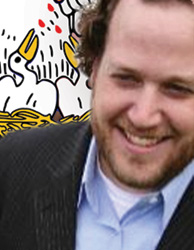By Jeremy Alford and Mitch Rabalais
Dr. Wayne McMahen of Springhill is Louisiana’s newest lawmaker, having won election unopposed to the open seat in House District 10, which was vacated by former Rep. Gene Reynolds. McMahen, a veterinarian, is a lifelong resident of the district, which encompasses all of Webster Parish and a small section of neighboring Bossier.
McMahen flipped a district that had been long held by Democrats, adding another vote to the ranks of the Republican majority in the lower chamber. (As of this morning, the count is 61-39-3.)
McMahen retired from his veterinary practice earlier this year, but said he still plans on seeing patients on a part-time basis while he’s serving in the House. “Right now, I’ve been fairly busy just visiting with people, getting to know them and seeing what the needs are in my district.”
The new representative, who was sworn-in earlier this month, said that rural health and education will be his top two priorities in the Legislature.
McMahen has served more than 15 years on the board for Springhill Medical Center, and is currently in his second stint as the hospital’s chairman. “It’s imperative that we are able to offer good health care in our community. People should not have to go 60 miles to Shreveport to see a doctor,” he said.
McMahen said that since his swearing in, he has traveled to Baton Rouge and gone through the standard orientation process for new House members.
He’s spoken several times with Reynolds, his predecessor, and met with almost the entire Northwest Louisiana delegation. “I’m just trying to get my feet wet this first year; meet the other legislators and build those bonds.”
So far, there are no committee assignments. But he is the newest member of the House Republican Legislative Delegation.
Political History: The Bayou State Rocket Man
In the history of American space exploration, the contributions of Shreveport’s Thomas Overton Brooks are often overlooked. As the first chairman of the House Committee on Science, Space and Technology, he steered the United States toward the stars and helped create the modern space program.
Politics was in his blood. He was born into a family of distinguished officeholders; the extended tree held a former congressmen, U.S. senator and governor. Overton even served on Capitol Hill alongside his upper chamber uncle, John H. Overton.
Originally a Baton Rouge native, Brooks served in the Army during World War I before returning home to attend LSU Law School. After graduating in 1923, he moved to Shreveport and started a private practice, allowing the law to become his means of entry into politics. He was soon active in Caddo Parish elections, and won a lucrative appointment in 1925 as a federal court commissioner (or what would now be a magistrate).
Eleven years later, Brooks entered a crowded race for the open seat in the Bayou State’s 4th Congressional District. His family called in a few favors and helped with building a campaign structure and war chest. His upper chamber uncle also secured the endorsement of the populist Long faction.
After the backlash over the Soviet Union’s launch of Sputnik, Speaker Sam Rayburn tapped Brooks to chair a new committee to create a space program and oversee government-sponsored scientific studies. According to his biography, which was prepared by the House, “Brooks immediately took the initiative, seeking to personally direct everything under the committee’s jurisdiction.”
During his tenure, Congress passed the legislation creating NASA and set the rules and guidelines the agency currently operates under. A particular sticking point for Brooks was ensuring that space exploration remained in civilian hands rather than operating as a military endeavor.
Then there were Brooks’ social politics. Upon being elected, he immediately aligned himself with conservative Democrats in the House, such as Strom Thurmond of South Carolina. In 1956, he signed the infamous Southern Manifesto — a segregationist pledge.
Like many from his generation, Brooks moderated his racial views later in life. During the following term, he even cast a controversial vote that allowed then-President John F. Kennedy’s civil rights legislation to move to a floor vote. In reaction, a local chapter of the Ku Klux Klan burned a cross on the lawn of the congressman’s home in Shreveport.
Brooks succumbed to a heart attack on Sept. 16, 1961, just weeks after the launch of the first manned missions into space. In 1984, the Science, Space and Technology committee honored its first chairman by having a painting of Brooks commissioned for their hearing room. From the walls, he still keeps a watchful eye on committee members, including two fellow Louisianans, Congressmen Ralph Abraham and Clay Higgins.
Will Insurance Race Be Competitive?
Insurance Commissioner Jim Donelon has held his elected position for a dozen years. He’s been elected to three full terms, and he’s aiming at another one.
As for opponents, politicos say Tim Temple of DeRidder is being encouraged to consider the race. His father was Aubrey T. Temple, Jr., the founding chairman of the board of Louisiana Workers’ Compensation Coporation. According to his Committee of 100 biography, “Temple’s experience started in the insurance industry and is both broad and comprehensive.”
In his last campaign finance report, filed in February, Donelon was sitting on a $204,000 war chest.
They Said It
“We’re about 99 percent certain that we’ll have a Trump. We’re just not sure which one.”
— Former State GOP Chair Roger Villere, on the Southern Republican Leadership Conference that’s slated for New Orleans.
For more Louisiana political news, visit www.LaPolitics.com or follow Jeremy Alford on Twitter @LaPoliticsNow.














Comments are closed.